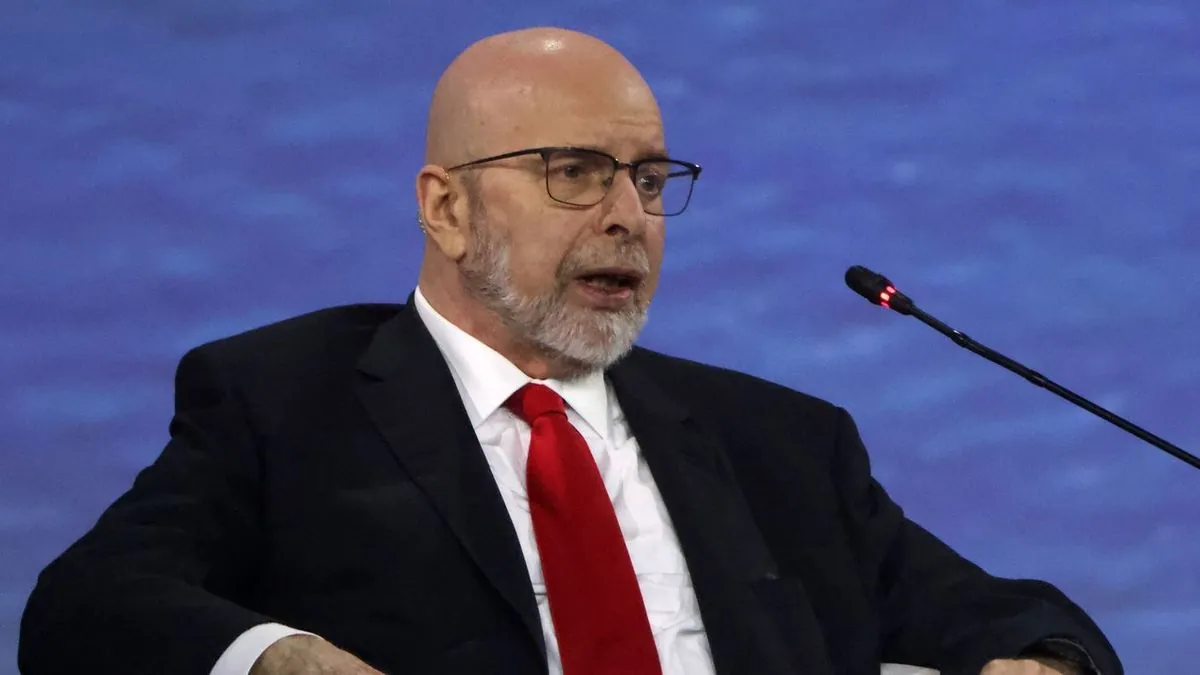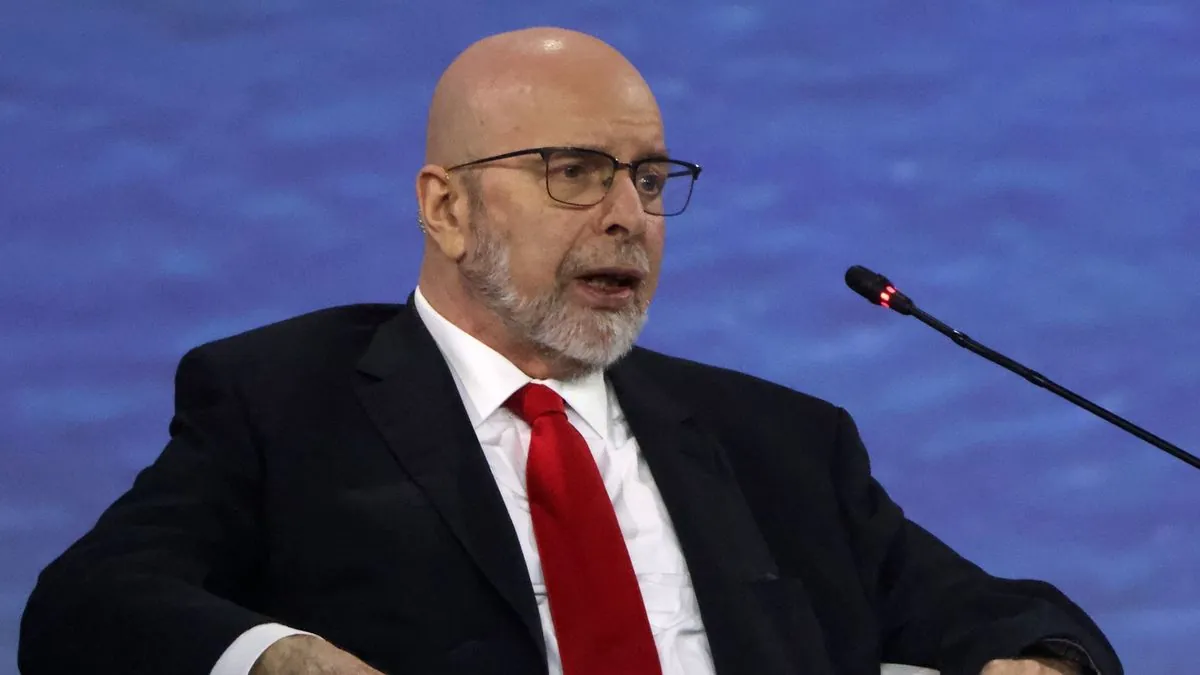U.S. Targets Russian-American Pundit in Foreign Influence Crackdown
The U.S. government charges Dimitri Simes with sanctions violations, raising questions about press freedom and foreign influence. The case highlights the delicate balance between national security and journalistic rights.

In a significant move to counter foreign influence, the U.S. government has intensified its efforts to combat Russian interference ahead of the 2024 presidential election. On September 4, 2024, authorities dismantled a network of websites accused of disseminating disinformation. The following day, the Justice Department unveiled criminal charges against Dimitri Simes and Anastasia Simes, dual Russian-American citizens currently residing in Moscow.
Dimitri Simes, a prominent figure in U.S.-Russian relations since his emigration to the United States in 1973, hosts a popular news commentary show on Russian state media. The charges against him include accepting over $1 million in salary from Russia's government-owned Channel One, which was sanctioned in 2022 following Russia's invasion of Ukraine. Additionally, the Simeses are accused of laundering at least $380,000 through an Armenian bank into their U.S. accounts.
Simes defends himself against these allegations, claiming he was advised that sanctions against Russian state media outlets did not target individual journalists. He argues that routing money through an Armenian bank was necessary to pay U.S. taxes and maintain his property in Virginia. Simes also denies involvement in building an "analytical center" to study U.S. actions, stating it was merely an idea for an independent think tank.
The case raises important questions about the implications of targeting journalists working for foreign news outlets. Simes contends he is being selectively prosecuted, noting that other U.S. citizens working for Russian state media have not faced similar charges. He argues that the prosecution is motivated by disapproval of his opinions rather than genuine sanctions violations.
This situation highlights the delicate balance between combating foreign influence and protecting press freedom. The U.S. government's actions could potentially undermine its objections to foreign countries harassing journalists working for U.S. media organizations, including government-funded outlets like Voice of America.
John Herbst, former U.S. ambassador to Ukraine, expressed skepticism about Simes' motives, stating, "He has always been an ambiguous figure in Washington regarding where his true loyalties lay."
Simes maintains that he is not a propagandist but rather presenting his point of view. He argues that his work serves as a voice of reason within the Russian intellectual spectrum, potentially benefiting U.S. interests by arguing against escalation.

As the U.S. government continues its efforts to protect the integrity of its information environment, the prosecution of Dimitri Simes serves as a complex case study. It underscores the challenges in balancing national security concerns with the principles of free speech and press freedom, particularly in an era of global media and cross-border influence operations.
"I am not a propagandist. I am presenting my point of view. I absolutely enjoy doing it. And I reject the notion that I have taken any side. I thought the First Amendment was designed exactly to protect unpopular views."
The outcome of this case may have far-reaching implications for journalists working abroad and the broader fight against foreign influence in domestic affairs. As the Justice Department pursues its objectives, careful consideration of the potential consequences for press freedom and international relations will be crucial.


































